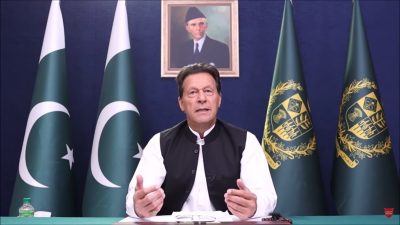Indirect Colonialism: U.S. Role in Triggering Pakistan’s Political Crisis
Pakistan is a victim of indirect colonialism by the United States, from the 1977 coup against Zulfikar Ali Bhutto to the overthrow of Prime Minister Imran Khan in 2022.

All Global Research articles can be read in 51 languages by activating the “Translate Website” drop down menu on the top banner of our home page (Desktop version).
To receive Global Research’s Daily Newsletter (selected articles), click here.
Visit and follow us on Instagram, Twitter and Facebook. Feel free to repost and share widely Global Research articles.
***
Did the U.S. government play a role in creating Pakistan’s current political crisis?
From the reports available so far, it seems likely that the U.S. government colluded with Pakistani politicians opposed to Prime Minister Imran Khan to have him removed from power.
According to Khan, members of the U.S. consular staff met several times with the opposition leaders and with only the dissident members of Khan’s party, Pakistan Tehreek-e-Insaf (PTI).
Even more significant is what U.S. Assistant Secretary of State for South and Central Asian Affairs Donald Lu said to Pakistan’s ambassador to the United States. The ambassador communicated Lu’s words to Imran Khan by a cable.
According to Khan, Lu told Pakistan’s ambassador that if the opposition’s no-confidence vote against Imran Khan succeeded and he was removed from power, the U.S. government would “forgive Pakistan.” But if the vote failed and Khan staid in power, there would be dire consequences for Pakistan. Such threats are never communicated in writing.
The aforementioned cable is the best evidence so far of the U.S. meddling in Pakistan’s internal affairs. U.S. consular staff’s choice of meeting only with anti-Khan politicians and Lu’s warning point an accusing finger at Washington.
There are many other details that support the likelihood of possible U.S. interference in Pakistan’s internal matters.
Assistant Secretary of State Lu confirmed in a Senate hearing on March 2 that Washington was pressuring Khan’s government over its refusal to condemn Russia for its war in Ukraine.
*
Note to readers: Please click the share buttons above or below. Follow us on Instagram, Twitter and Facebook. Feel free to repost and share widely Global Research articles.
Abdul Jabbar is a scholar originally from Pakistan. He has taught interdisciplinary studies (including political science) in the United States for nearly half a century, so he has been following the developments in Pakistan with great interest and concern, both from professional and personal points of view.
Featured image is from Multipolarista

